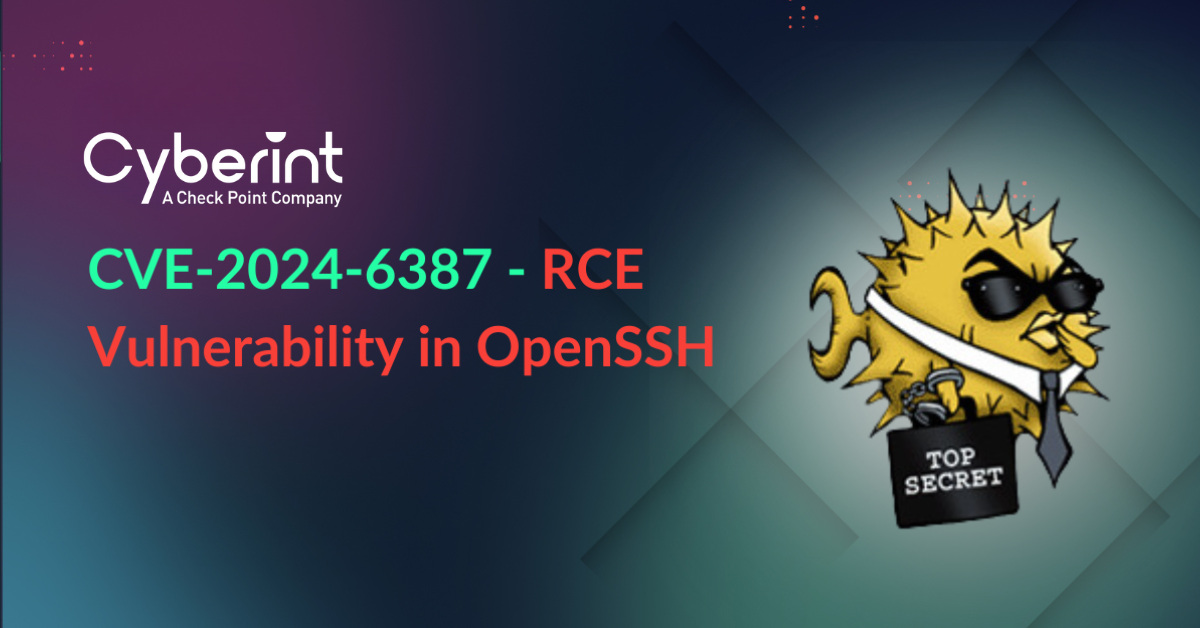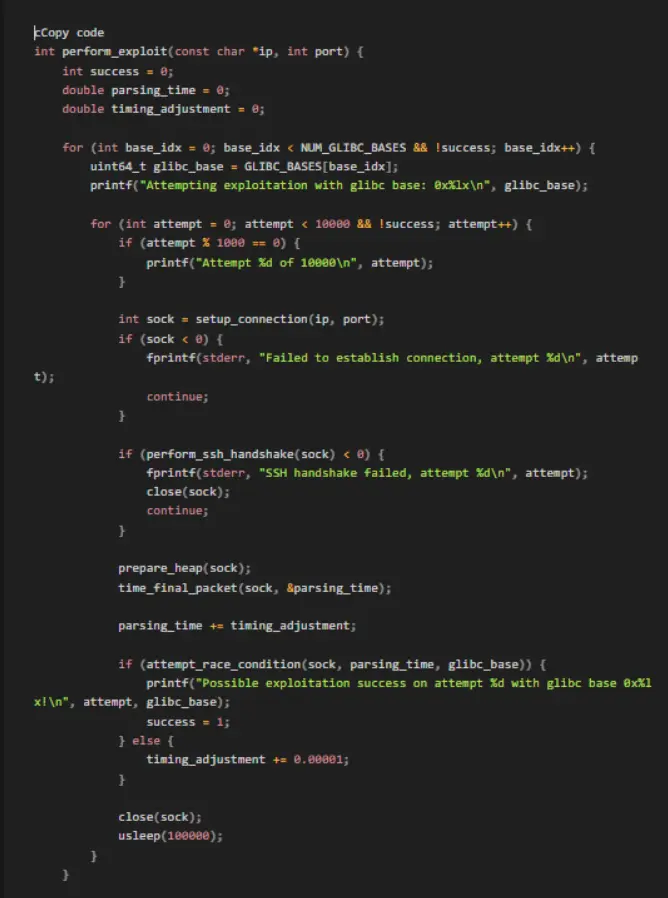


The Cyberint Research Team work round the clock to unearth the latest threats to SMBs and enterprises. They are on top of the latest TTPs and monitor rising threat groups, malwares and trends.
A high-severity remote code execution (RCE) vulnerability, CVE-2024-6387, has been discovered in OpenSSH’s server by the Qualys research team. This vulnerability is particularly concerning as it revives an issue that was previously addressed in 2006, highlighting the persistence of hidden bugs in widely used secure software. This discovery follows another significant vulnerability in the XZ Utils library found just a few months ago, underscoring ongoing security challenges.
Although CVE-2024- 6387 is a serious flaw, it is notably difficult to exploit, and no successful remote attacks have been reported so far. Nonetheless, it is crucial to understand the risk and take measures to protect your systems, especially given SSH’s extensive use for accessing Kubernetes nodes and sometimes within Kubernetes workloads, thus significantly impacting cloud systems.
The CVSS v3 base score for the vulnerability is 8.1, with a High severity rate.
A signal handler race condition vulnerability was discovered in OpenSSH server (sshd) affecting its default configuration. If an SSH client fails to authenticate within the `LoginGraceTime` period (120 seconds by default), the SIGALRM (signal alarm) handler is called asynchronously. However, some of the functions it calls are not async-signal-safe, including `syslog()`. In glibc-based Linux distros, under certain conditions, `syslog()` calls the async-signal-unsafe functions `malloc()` and `free()`.
If a call to either of these is interrupted by code that also calls a heap-related function, this could lead to heap corruption, which can be exploited to achieve arbitrary code execution with sshd’s root privileges.
According to Cyberint Research, widespread exploitation of this vulnerability is unlikely. Current exploitations rely on distribution-specific conditions (like ASLR) and glibc-version-specific struct layouts, requiring attackers to know the target Linux distribution in advance to build a functional exploit. This significantly limits the vulnerability’s potential for widespread opportunistic exploitation.
Additionally, successful exploitation typically requires several hours of login attempts, resembling a password brute-force attack, which can be mitigated by existing brute-force prevention and detection measures. However, attackers could adopt a more patient approach, targeting machines over several weeks and switching between multiple IP addresses, similar to password spraying, making detection more difficult.
Below is an example from this GitHub repo demonstrating how an attacker might exploit this vulnerability:

The research paper provides practical examples illustrating exploitation in different OpenSSH
versions:
The following versions of OpenSSH are affected by this vulnerability:
The vulnerability is exploitable on glibc-based Linux distributions (e.g., Debian-based). As of July 1st, 2024, no exploitation has been identified in the wild, with proven exploitation occurring only under lab conditions on 32-bit Linux/glibc systems (with ASLR). Exploitation on 64-bit systems has not been proven but is believed possible.
System administrators should remain vigilant, apply patches promptly, and implement additional safeguards to mitigate the risks posed by such vulnerabilities. By staying informed and proactive, organizations can significantly strengthen their resilience against emerging cybersecurity threats.
Cyberint Recommends to take the following security steps:
https://blog.qualys.com/vulnerabilities-threat-research/2024/07/01/regresshion-remoteunauthenticated-code-execution-vulnerability-in-openssh-server
https://www.openssh.com/txt/release-9.8
https://github.com/zgzhang/cve-2024-6387-poc
https://www.tenable.com/cve/CVE-2024-638
©1994–2025 Check Point Software Technologies Ltd. All rights reserved.
Copyright | Privacy Policy | Cookie Settings | Get the Latest News
Fill in your business email to start


